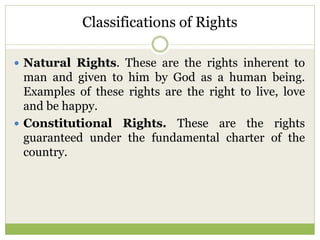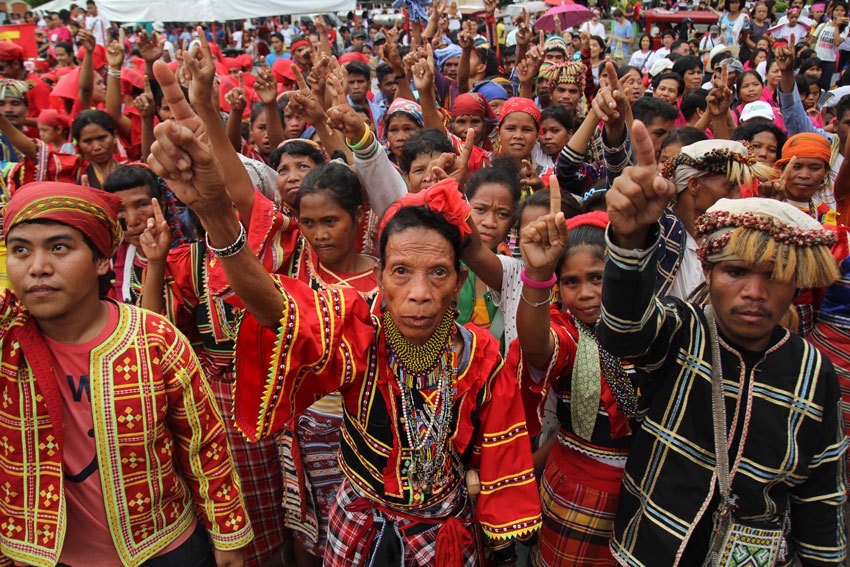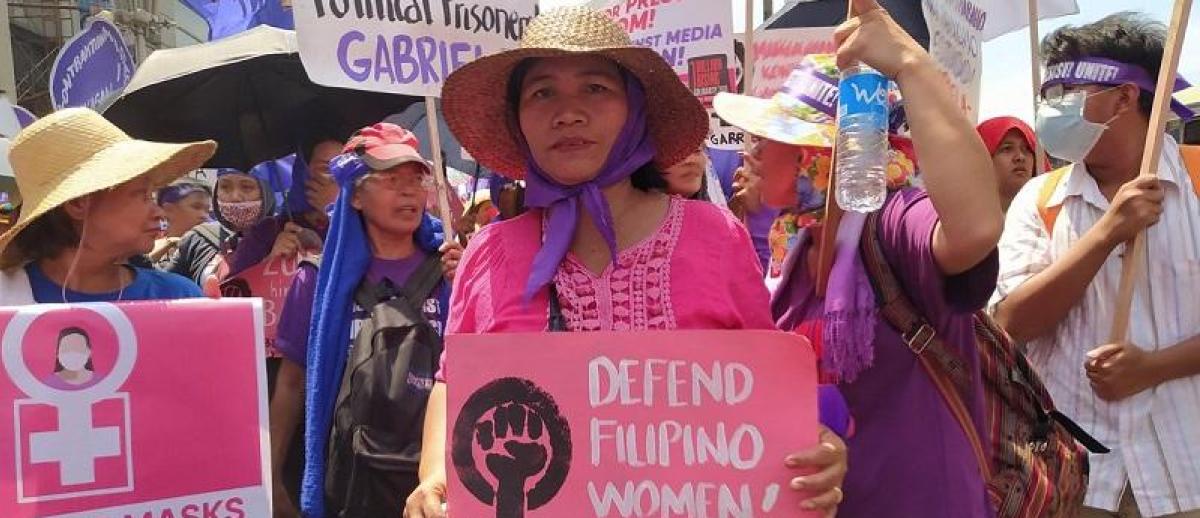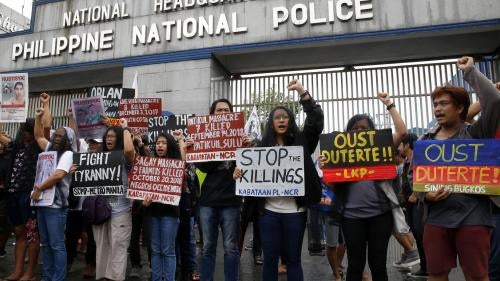What are the list of legal rights in the Philippines:The Philippines guarantees rights like life, liberty, due process, free speech, suffrage, and equality under its Constitution.
Constitutional Rights
The Constitution of the Philippines enshrines a series of fundamental rights that safeguard the liberties and freedoms of its citizens, acting as the cornerstone for the rule of law in the nation.
- Right to Life
Every individual in the Philippines inherently possesses the right to life. This principle emphasizes the sanctity and value of human life, ensuring protection against any unwarranted deprivation of life. - Right to Liberty
Filipinos are guaranteed the right to liberty, which upholds their freedom from arbitrary arrest, detention, or any other form of restriction without just cause. - Right to Due Process and Equal Protection
This signifies that any legal actions or proceedings against an individual must be fair, impartial, and follow established procedures. - Right to Privacy
The right to privacy protects Filipinos against unwarranted intrusions into their personal lives, communications, and private affairs. This right stands as a shield against any unjust surveillance or interference by the state or other entities. - Right to Free Speech and Expression
Every Filipino citizen is ensured the right to free speech and expression, allowing them to voice out opinions, beliefs, and ideas without the fear of censorship or retaliation. This fundamental right fosters an environment of open discourse and democratic dialogue.

Civil Rights
Civil rights in the Philippines ensure that every citizen has the basic freedoms and protections in their daily interactions and transactions. These rights are foundational to the country’s legal system and play a crucial role in ensuring fairness and justice in civil matters.
- Right to Property
Every Filipino citizen has the right to own, possess, and dispose of property. This right ensures individuals have the security and freedom to acquire assets, which can be tangible, like land or houses, or intangible, such as intellectual property. - Right to Enter into Contracts
Entering into contracts forms the backbone of commerce and personal transactions. Filipinos have the right to enter into contracts freely, provided that these agreements don’t go against the law, public order, public policy, morals, or good customs. - Rights to Marry and Start a Family
Filipinos have the freedom to choose their life partner and decide when to establish their own families. The right to marry ensures that citizens can engage in matrimonial unions with free and mutual consent, unhampered by undue influence or coercion. - Right to Inheritance
Inheritance laws in the Philippines protect the rights of heirs to receive properties, rights, and obligations from their predecessors.
Political Rights
Political rights are pivotal to the functioning of a democratic society. They empower individuals to participate actively in the political processes of their nation. In the Philippines, these rights foster democratic values and ensure that the power remains with the people, allowing them to shape their nation’s direction.
- Right to Suffrage (Vote)
Every eligible Filipino citizen has the right to suffrage, granting them the power to vote in local and national elections. This ensures that the electorate has a direct role in choosing their representatives and decision-makers. - Right to Peaceably Assemble
Citizens have the freedom to peaceably assemble for any cause, be it political, social, or other purposes. This right supports public demonstrations, rallies, and meetings where individuals can collectively express their views. - Right to Petition the Government
Filipinos possess the right to petition the government to address grievances, concerns, or to advocate for change. This ensures a direct channel of communication between the citizenry and their government, promoting transparency and accountability. - Right to Participate in Public Affairs
Beyond voting, Filipinos have the right to directly participate in public affairs, such as town hall meetings, public consultations, or even standing for public office.
Economic Rights
Economic rights encompass a range of entitlements that enable individuals to achieve a basic standard of living, ensuring their well-being and dignity. In the Philippines, these rights highlight the government’s commitment to promoting economic prosperity and ensuring that all citizens can partake in the nation’s wealth.
- Right to Work
Every Filipino has the right to work, ensuring that individuals can seek employment without discrimination, engage in decent and productive labor, and receive fair compensation for their efforts. - Right to Form and Join Labor Unions
Workers in the Philippines are free to form and join labor unions, allowing them to collectively bargain for better working conditions, wages, and benefits. Through these unions, workers can advocate for their rights and address grievances against employers. - Right to Social Services
All Filipinos are entitled to access social services provided by the government, including welfare benefits, housing assistance, and educational grants. These services aim to reduce poverty and improve the quality of life for all citizens, especially the marginalized. - Right to Adequate Health Care
The right to health signifies that every individual in the Philippines should have access to adequate health care services. This includes preventive, curative, and palliative health interventions, ensuring everyone can lead a healthy life.

Constitutional Rights
The Constitution of the Philippines enshrines a series of fundamental rights that safeguard the liberties and freedoms of its citizens, acting as the cornerstone for the rule of law in the nation.
- Right to Life
Every individual in the Philippines inherently possesses the right to life. This principle emphasizes the sanctity and value of human life, ensuring protection against any unwarranted deprivation of life. - Right to Liberty
Filipinos are guaranteed the right to liberty, which upholds their freedom from arbitrary arrest, detention, or any other form of restriction without just cause. - Right to Due Process and Equal Protection
This signifies that any legal actions or proceedings against an individual must be fair, impartial, and follow established procedures. - Right to Privacy
The right to privacy protects Filipinos against unwarranted intrusions into their personal lives, communications, and private affairs. This right stands as a shield against any unjust surveillance or interference by the state or other entities. - Right to Free Speech and Expression
Every Filipino citizen is ensured the right to free speech and expression, allowing them to voice out opinions, beliefs, and ideas without the fear of censorship or retaliation. This fundamental right fosters an environment of open discourse and democratic dialogue.
Cultural Rights
Cultural rights pertain to the preservation, appreciation, and promotion of a nation’s cultural heritage and values. In the Philippines, these rights are integral in maintaining the rich tapestry of its diverse culture and traditions, enabling Filipinos to engage with and celebrate their identity.
- Right to Cultural Heritage and Identity
Every Filipino has the right to cultural heritage and identity. This ensures protection and appreciation of historical sites, traditions, languages, and rituals that define the Filipino culture, allowing citizens to connect deeply with their roots. - Right to Education
The right to education is fundamental, ensuring every Filipino access to quality and inclusive education. Beyond basic literacy, it also entails the integration of Filipino culture, values, and history, cultivating a deep sense of national pride and identity among students. - Right to the Arts and Scientific Advancement
Filipinos are encouraged and entitled to engage with, produce, and benefit from the arts and scientific advancements. This right promotes creativity, innovation, and the continued evolution of Filipino arts and sciences, enriching the nation’s cultural fabric.

Rights of the Accused
The rights of the accused ensure that individuals facing legal accusations are treated fairly, justly, and with respect to their inherent human dignity. In the Philippines, these rights aim to protect individuals from potential abuses of the legal system, ensuring a just and equitable process.
- Right to a Speedy and Public Trial
Every individual accused of a crime in the Philippines is ensured the right to a speedy and public trial. This prevents undue delays that might infringe on one’s liberty and ensures transparency in the judicial process. - Right to Counsel
An individual facing legal charges has the right to counsel, ensuring they are represented and advised by a lawyer during the legal proceedings. If the accused cannot afford a lawyer, the state provides one, ensuring that everyone, regardless of their economic status, has an equal opportunity for defense.
Right to Bail
The right to bail is an essential component of the Philippine justice system, ensuring that individuals accused of a crime can secure temporary freedom while awaiting trial. This right reflects the principle that detention before conviction should be an exception, not the rule.
- Rights of the Child
Children, given their vulnerability and potential, hold a special place within the legal framework of the Philippines. Their rights emphasize their need for protection, care, and opportunities for growth. - Right to a Name and Nationality
Every child in the Philippines has the right to a name and nationality. A name provides identity, while nationality ensures the child’s legal relationship with the state, granting them access to services and protections afforded to citizens. - Right to Survival, Development, and Protection
The right to survival, development, and protection underscores the state’s commitment to ensuring children’s well-being. This right entails access to healthcare, education, and a safe environment that is conducive to their holistic growth. - Right to be Free from Abuse and Neglect
Children are ensured the right to be free from all forms of abuse and neglect. This right emphasizes the need to shield children from physical, emotional, or sexual harm and to ensure that they grow in an environment filled with love and care.

Women’s Rights
Women’s rights in the Philippines have evolved significantly over the years, with policies and movements pushing for greater equality and protection. These rights ensure that women, like all citizens, have the full capacity to act, participate, and thrive in various aspects of society.
- Right to Protection from Gender-Based Violence
Every woman has the right to protection from gender-based violence. This right recognizes that women are often targets of specific forms of violence due to their gender, and measures are in place to prevent, address, and redress such instances. - Equal Rights in All Matters Relating to Marriage and Family
Women in the Philippines have equal rights in all matters concerning marriage and family. - Right to Equal Opportunities in the Workforce
The right to equal opportunities in the workforce guarantees women the same chances as men in terms of employment, promotions, benefits, and any other related aspect. It ensures that women are judged based on their skills and qualifications, not their gender.The Philippines, being an archipelago with rich biodiversity, places great emphasis on environmental rights. These rights aim to ensure the continued balance and health of the country’s ecosystems, not just for the present generation but for future ones as well.

Environmental Rights
The Philippines, being an archipelago with rich biodiversity, places great emphasis on environmental rights. These rights aim to ensure the continued balance and health of the country’s ecosystems, not just for the present generation but for future ones as well.
- Right to a Balanced and Healthful Ecology
This right signifies the importance of preserving the country’s natural resources, maintaining biodiversity, and ensuring that the environment remains conducive to life and well-being. - Right to Access Natural Resources in a Sustainable Manner
While the Philippines is blessed with abundant natural resources, the right to access these resources emphasizes doing so in a sustainable manner. It ensures that the exploitation of these resources does not lead to depletion or degradation, maintaining their availability and integrity for future generations.
- Right to a Balanced and Healthful Ecology
Every Filipino is entitled to a balanced and healthful ecology. This right signifies the importance of preserving the country’s natural resources, maintaining biodiversity, and ensuring that the environment remains conducive to life and well-being. - Right to Access Natural Resources in a Sustainable Manner
While the Philippines is blessed with abundant natural resources, the right to access these resources emphasizes doing so in a sustainable manner. It ensures that the exploitation of these resources does not lead to depletion or degradation, maintaining their availability and integrity for future generations.
Rights of Indigenous Peoples
Indigenous peoples in the Philippines have a deep-rooted connection to the land and their traditions.
- Right to Ancestral Domains and Lands
The right to ancestral domains and lands safeguards the territories that indigenous peoples have historically inhabited. This ensures they have full control and rights over these areas, preventing displacement and promoting the sustainable use of these lands in harmony with their traditions. - Right to Preserve Cultural Identity and Traditions
Indigenous peoples have a rich tapestry of cultural practices, languages, and traditions. The right to preserve their cultural identity underscores the importance of allowing these communities to continue practicing their ways without outside interference or influence, ensuring the survival and transmission of their unique cultures to future generations. - Right to Participate in Decision-Making Processes
This means they have a voice in policies and initiatives that might impact their communities, guaranteeing a more inclusive approach to governance.
